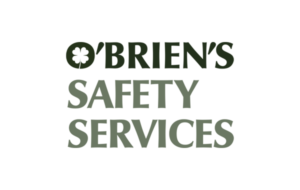The New Year is a time when many think about resolutions be it looking for new job, tackling a new challenge or taking on a new project. Have you ever been through a rigorous interview or contractor pre-qualification?
If your answer is no then you are one of the lucky few. If your answer is yes, keep reading.
Recently I assembled a bid package for a client and was befuddled at the level of inquiry and requirements coming from this mid-sized construction contractor. Of course, I understand a client contractor must perform the necessary level of due diligence to mitigate the risk of bringing a qualified or inappropriate subcontractor onto their property. A few months later, while working for the client, I asked how this project was panning out. To my amazement they said that the same client that was overly onerous in their prequalification was over 90-days past due on paying them. They went on to share other concerning things they had learned about the client that seemed impossible based on the qualification and vetting process.
In industry we assume, the more rigorous the interview the more safety conscious and desirable the client. Meaning, the harder it is to get into a company the better they are to work for. In high school we were under a similar impression, that if a girl played hard-to-get she was more of a catch.
Time and experience have debunked both.
Throughout the interview process, be it for a job or construction bid, we are asked to supply every miniscule detail about ourselves and our organization, but rarely get much in return. It begs the question, who am I potentially signing up to work for and who, in this data driven age of security breaches, am I supplying all my personal information to?
In the era of the digital age, it is as easy as a few clicks of a mouse to learn more about the organization that wants to know so much about you.
Start with your social networks. Who do you know that might work or has worked for Company-X? If you cannot think of someone, check your social media accounts such as linked in or even Facebook to see if any of your contacts work or have worked there. Ask them about their experience working for the company or other details you might be interested in knowing like the company culture or pay structure.
Linked in also may have employee reviews of employers or details about the company that you wouldn’t find from a hiring manager. Additionally, search for the company by name on Facebook to see if they have a company page or if there are comments inside Facebook that might prove helpful.
If you concern is safety, you can look up a company’s OSHA safety records on OSHA’s website.
OSHA maintains a record of employer offenses, which the general public can access through the agency’s online database or by sending a written request under the Freedom of Information Act. The database has a default date range of five years, but you can search for up to 10 years at a time.
If you are interviewing for a job, check the internet job boards to see if the job boards to see how long the job you are interviewing for has been open and how often the company recruits for this position. If the job is frequently re-posted there stands a chance it’s a tough job to keep people in and there is likely a reason why. Some job boards also link to anonymous employee reviews which can be helpful.
Glassdoor is another great site to see how employees rank their employers. You will have to sign up for the site but it’s an anonymous search on your end, meaning the employer doesn’t see that you are researching them and it’s free.
Internet creeping, otherwise known as googling, a prospective client or company is no more wrong than them conducting a background check on you. So, what is the harm? The only downside as I see it is, based on experience, the good things we do as an organization, giving promotions, pay raises, atta-boys (awards) are rarely are posted to the web. It is typically when someone is upset because of a parting of ways or a difference of opinion that they seek out social media to share their opinion and let their voice be heard.
By using sensible caution when researching a prospective employer you should be able to gain a level of information not otherwise available and make a better informed decision whether or not this is a company you want to be affiliated or employed.



